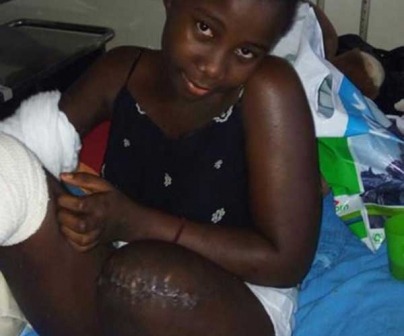×
The Standard e-Paper
Kenya’s Boldest Voice

The girl who lost her legs after she was run over by a train can finally afford a smile.
Touched by Sharon Makungu's plight individuals and organisations have come forward to offer their support to the young girl whose story was published in The Standard on Sunday.